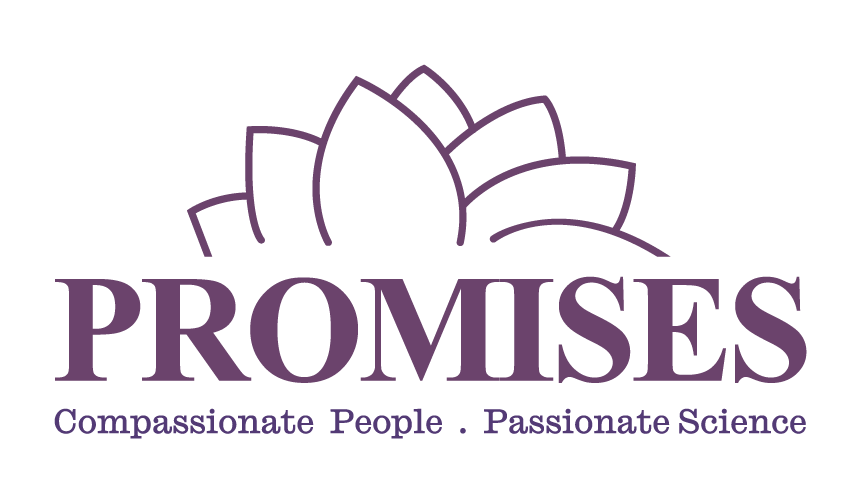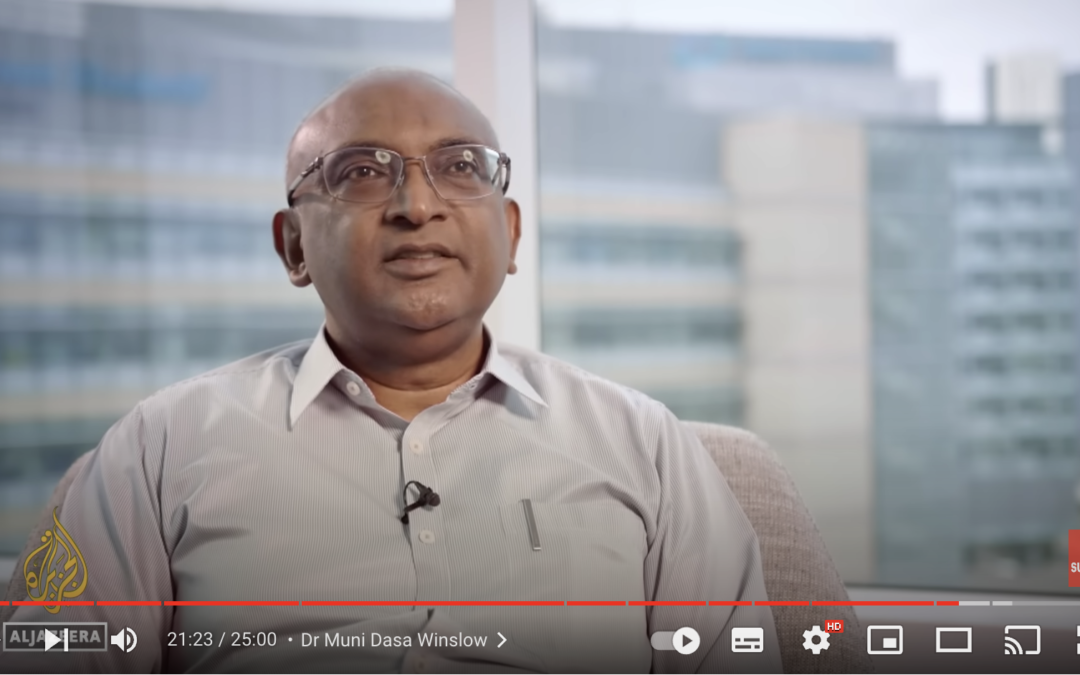

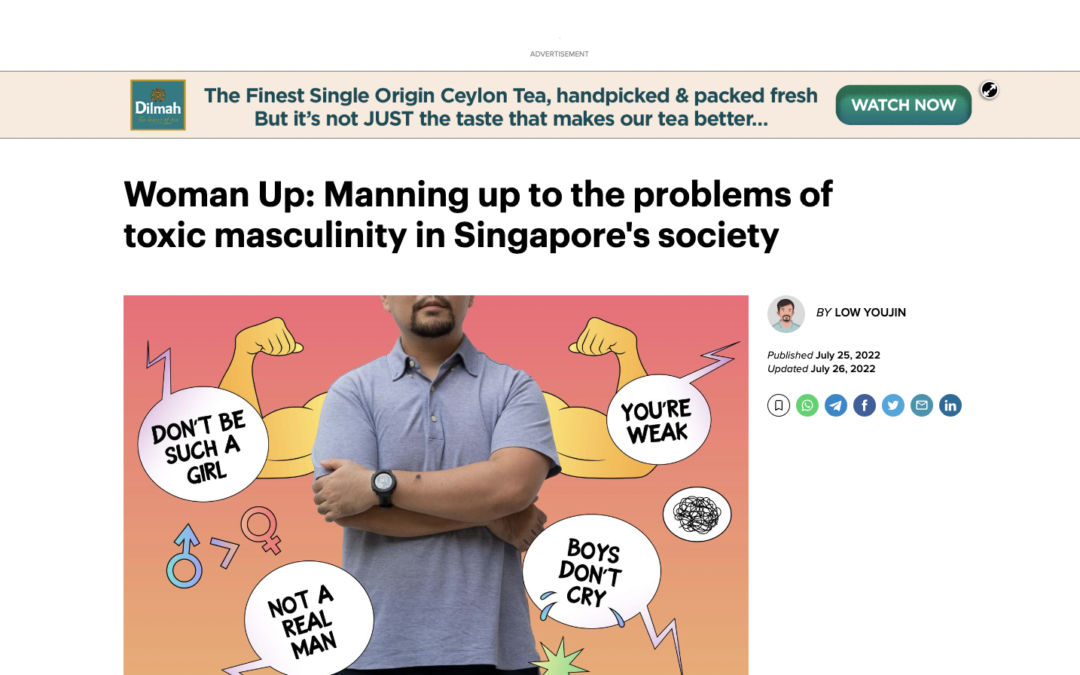
Manning up to the problems of toxic masculinity in Singapore’s society
TODAY Online spoke with various experts regarding Toxic Masculinity. Among them, is Dr Munidasa Winslow.
here’s what he said in this quote:
Finally, experts said the proliferation of the internet and technology has also driven some toxic behaviours, including the mass consumption of pornography, which has been shown to lead its consumers to “objectify women and view them as sexual objects for their own gratification”, said Dr Munidasa Winslow, the founder of the psychiatry and psychology clinic Promises Healthcare.
Follow the link to read the whole article: https://www.todayonline.com/singapore/woman-manning-problems-toxic-masculinity-singapores-society-1946621
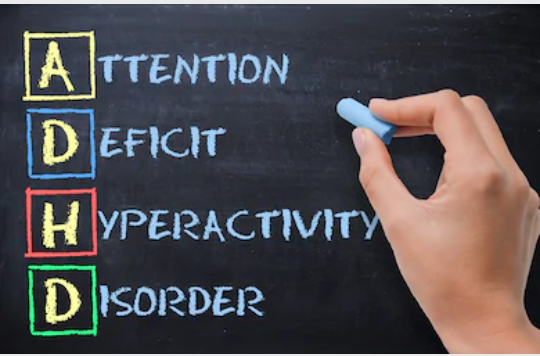
You can manage your ADHD better – by thinking about it differently
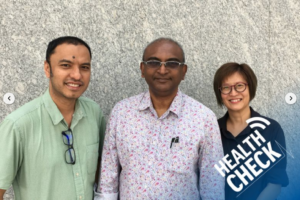
In this episode of the Health Check podcast, Dr. Winslow reveals that he suffers from attention-deficit hyperactivity disorder. No-one would begrudge you your raised eyebrows, least of all him. After all, it is precisely his duty to educate you about ADHD.
Dr. Winslow joined journalists Joyce Teo and Ernest Luis at The Straits Times’ podcast studio, where the duo court the expertise of medical professionals to inform and enlighten. Armed with myriad perspectives, Dr. Winslow availed his own brain to help demystify ADHD.
It wasn’t until Dr. Winslow began to see the parallels between his childhood behaviour and those of his clients with ADHD, that he realised he too had the disorder. It didn’t seem to bother him too much – he laughs at being chided by his son’s teachers for his pride in his son’s ability “to pass exams exactly the same way” as he did, without paying attention in class.
Dr. Winslow says that in the brains of people with ADHD, communication between cells is difficult – that’s how they are more likely to lose focus, become distracted, or give in to impulses. Singapore’s regimented education system doesn’t help either. Students with ADHD face real disadvantages, in their inability to sit through lessons, and in the way educators see those who refuse to (or simply can’t) pay attention for long stretches.
Dr. Winslow recalls being forced to run laps around the school as a child by his teachers, who had hoped to wear his indefatigable energy down into submission in time for class. He admits that it worked surprisingly well. ADHD can be managed, as he would learn.
It is unfair to say that ADHD is “not a real disorder”, and that one merely needs to “concentrate on overcoming it”. That just doesn’t make sense. ADHD is a medical condition that can be tackled with correct tools and the right will. Dr Winslow says it’s possible to address the few big symptom groups (Hyperactivity, Impulsiveness, and Difficulty with Distractibility) with practical advice in the right contexts. For example, you might teach your always-tardy child about time management with to-do lists.
Dr. Winslow says parents should try and come to terms with their child’s ADHD, or risk more worrisome aspects spilling over into adulthood. Adult ADHD often comes packaged with low self-esteem, where inability to complete tasks due to inattention becomes internalised as laziness in a self-defeating cycle.
Overcoming ADHD is easy, says Dr. Winslow, when you understand this maxim: “The more you understand the complications brought by your limitations, the more you can do to manage your symptoms.” It’s an expansion of the classic “knowledge is power”.
Once you begin to appreciate the ADHD brain for its quirks, advantages become more apparent. The meandering thoughts of people with ADHD often help them develop novel solutions to problems – “thinking outside the box”.
The doctor’s recommendations? Don’t panic, try to understand ADHD, and don’t forget the fish oils!
Listen to the Health Check podcast over at The Straits Times website, or search for it on your favourite podcast platform.
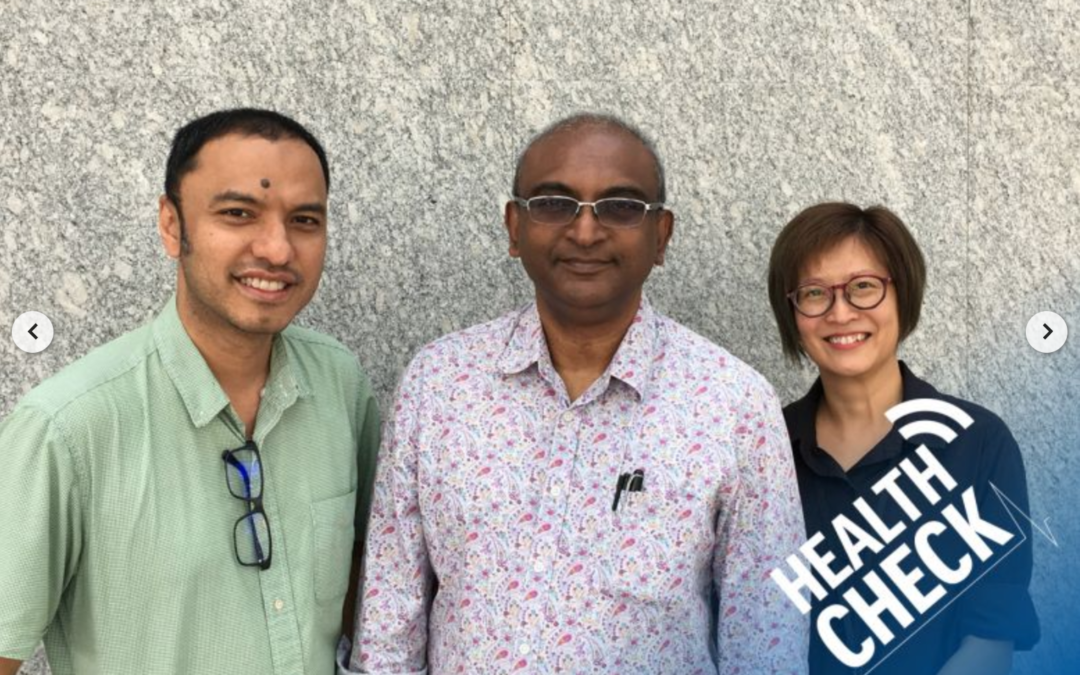
Dr. Winslow’s 15-minute Clinic on Addictions
Dr. Munidasa Winslow was recently invited onto The Straits Times’ fortnightly healthcare podcast, Health Check. On it, journalists Joyce Teo and Ernest Luis discuss health issues with prominent medical experts, seeking to promote health and debunk myths. And for a deeper dive into addictions, who better than the effervescent Dr. Winslow, often described as a ‘pioneer of addiction medicine in the Asia-Pacific’.
Dr. Winslow ploughed right in, rejecting the “just say no” rhetoric that characterised ham-fisted anti-drug campaigns of the 1980s. Speaking from an addict’s perspective, he got his hosts laughing when he quipped that addicts would long have overcome their self-destructive tendencies if “just saying no” actually worked!
He went on to note that addictions largely fit within two categories, the ‘substance’ addictions (drugs, alcohol, etc.) and the ‘behaviour’ addictions like sex and gambling addiction. Dr. Winslow highlighted that the World Health Organisation had for the first time classified compulsive sexual behaviour disorder (CSBD) as a mental disorder in 2018. Interestingly, during the early stages of Singapore’s Institute of Mental Health’s sex addiction treatment program, he noticed a common thread amongst those who sought help. Most of them had strong value or belief systems, or religious tendencies. He said these people would realise that in acting out their compulsions, they “were not acting according to [their] own value system”, causing them “internal pain and emotional discomfort”.
Why then do people get addicted if addiction is so uncomfortable? Dr. Winslow says that one’s addiction first has to serve a function, such as the intoxicating allure of power in an otherwise downtrodden existence, or the erasure of feelings for someone deeply dissatisfied with life. And yes, he says, certain people are indeed more likely than others to fall into addiction. For example, people with ADHD who often have impulse control issues, or people who have suffered sexual or emotional traumas previously.
To listen to Dr. Winslow provide succinct answers to a whole host of addictions-related questions, entertain his hosts with light-hearted anecdotes, and shed light on misconceptions about his field of expertise, click here, or search for “Health Check” on your podcast platform of choice.
